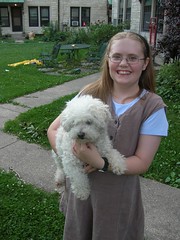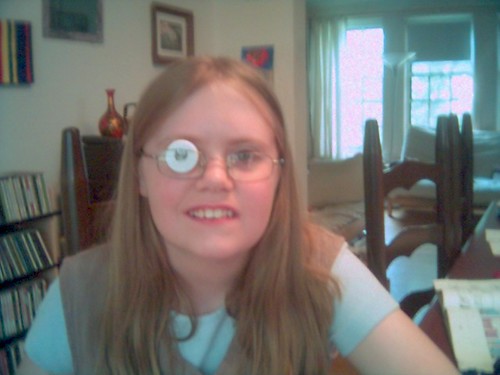Yesterday I wrote a long-ish comment on Archbishop of Canterbury Rowan Williams’s recent response to General Convention. I didn’t post it, because I didn’t do a good enough job of clarifying the difference between how I feel about the current state of things (on one hand) and what seems practicable, honest, viable, and in keeping with demonstrated trajectories of thought and behavior.
The short answer is that his statement reminds me vividly of the legend of Thomas a Becket. I stress “the legend,” because my point doesn’t depend on what the historical Thomas was really like (or was he married to Mary Magdalene in the South of France by Leonardo da Vinci); the legend, however, simplifies Becket to the man who placed a higher emphasis on his sense of the office of Archbishop than on his friendship with Henry and his roistering temperament. I read Williams as a theologian serving the office of Archbishop as best he understands, over and above his personal inclinations. I respect that a lot, even when I wish it led to different outcomes.
If I were to place his response on a spectrum that extends from “my ideal plausible response” (omitting, that is, mass miraculous conversions of the heart) to “oh, my heavens, I can’t endure that” (and omitting “the renewal of Dioceltianic persecution), this sounds closer to “pretty good” than “pretty bad.” Whether U.S. church leaders are right or not, the whole of the Anglican Communion is not on board with their understanding of the gospel, and I can7’t see a sound theological basis for requiring that the rest of the church to let us have whatever we want and remain in strong ecclesiastical communion with them. (By the way, I wholeheartedly agree with what Alan Jacobs wrote here a few days ago: I’m sick and tired of hearing that “the Spirit is doing a new thing,” without the rich, respectful theological argumentation that might confirm people’s identification of the Spirit’s activity in recent developments.)Granted that the U.S. church isn’t about to repent, Williams’s picture of a two-tiered communion that grants the Episcopal Church use of the Anglican tag, but excludes it from doctrinal and policy decision-making just plain makes sense.
I wish we hadn’t come to this place, but I don’t see Williams making a more congenial response to where we’ve been taken.


